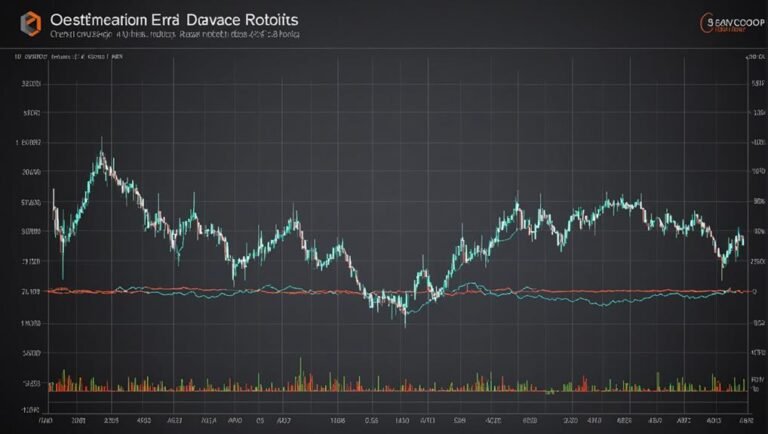What Is Crude Oil, and Why Is It Important to Investors?
Crude oil, a mixture of hydrocarbon compounds from organic sources, drives the global energy framework. Investors value crude oil due to its significant impact on economic sectors worldwide, influencing investment decisions. The extraction methods and composition of crude oil play an important role in understanding industry dynamics and evaluating investment opportunities. Additionally, refining processes convert crude oil into essential petroleum products like gasoline and diesel, meeting diverse energy demands. Monitoring market trends, OPEC decisions, and employing forecasting tools are essential for investors exploring the complex crude oil market landscape. Understanding its importance is key to informed investment strategies.
Key Takeaways
- Crude oil is a hydrocarbon compound vital to global industries and economies.
- Understanding extraction methods aids in assessing production costs and industry trends.
- Crude oil's discovery during the Industrial Revolution drove technological advancements.
- Investors benefit from forecasting tools, risk management strategies, and diversification in oil assets.
- OPEC's decisions influence global oil prices, impacting market dynamics and investor strategies.
Crude Oil: Composition and Extraction
Analyzing the composition and extraction methods of crude oil provides essential insights into the intricate nature of this important natural resource for investors seeking a thorough understanding of the industry. Crude oil primarily consists of hydrocarbon compounds derived from organic matter.
Drilling techniques, such as rotary drilling, are employed to extract crude oil from reservoirs deep beneath the Earth's surface. The drilling process involves drilling a wellbore into the earth to access the oil-bearing rock formations. Once the well is drilled, various extraction methods, including primary, secondary, and tertiary recovery techniques, are utilized to bring the crude oil to the surface.
Understanding these extraction methods is crucial for investors to assess production costs, potential reserves, and overall industry dynamics accurately.
Historical Significance and Global Impact
The historical significance and global impact of crude oil are intricately intertwined with the evolution of modern industrial economies and geopolitical landscapes. Discovered during the Industrial Revolution, crude oil became a cornerstone of the global economy, driving industrialization and technological advancements.
However, its importance has also led to geopolitical tensions as nations vie for control over limited reservoirs, influencing global power dynamics. Key oil-producing countries such as the U.S., Saudi Arabia, and Russia, along with organizations like OPEC, hold significant sway over oil prices and supply.
Technological innovations like fracking have reshaped the industry, altering the traditional dominance of oil-producing nations. The interplay between crude oil, industrial development, and geopolitical interests continues to shape global economic landscapes.
Crude Oil Vs. Petroleum: Refining Process
Refining processes play a pivotal role in converting crude oil into various usable petroleum products, distinguishing it from its raw, unprocessed form extracted from the ground. Crude oil, as the raw material, is an essential energy source that undergoes refining in facilities like refineries.
Through processes such as distillation, where crude oil is heated to separate its components based on boiling points, various products like gasoline, diesel, and fuel oil are obtained. Additional refining steps like cracking and reforming further transform these products into more specialized fuels and chemicals.
The refining of crude oil is crucial to meet the diverse energy needs of consumers and industries, highlighting its significance as a versatile energy source.
Investing Strategies and Forecasting Tools
Utilizing a combination of sophisticated forecasting models and strategic investment approaches is essential for maneuvering through the complexities of investing in crude oil markets.
When considering investment strategies and forecasting tools in the crude oil sector, investors should focus on the following key aspects:
- Price Prediction: Employing analytical tools to forecast potential price movements can help investors make informed decisions.
- Risk Management: Implementing effective risk management strategies is vital in mitigating potential losses and ensuring portfolio stability.
- Diversification: Spreading investments across different oil-related assets can help reduce overall risk exposure.
- Technical Analysis: Utilizing technical indicators and chart patterns can aid in identifying market trends and potential entry or exit points.
OPEC Influence and Market Dynamics
OPEC's pivotal role in shaping global oil prices and market dynamics is a fundamental aspect of the crude oil industry's landscape.
The Organization of the Petroleum Exporting Countries (OPEC) consists of 13 member states, with major players such as Saudi Arabia, Iran, Iraq, Kuwait, and Venezuela.
OPEC dynamics heavily influence price fluctuations in the oil market through production quotas and supply adjustments.
The decisions made by OPEC regarding oil production levels directly impact global supply and demand balances, consequently affecting crude oil prices.
Market dynamics are intricately linked to OPEC's actions, making it a key player in determining the stability and volatility of oil prices worldwide.
Understanding and monitoring OPEC's influence is essential for investors seeking to navigate the complexities of the crude oil market.
Conclusion
In summary, crude oil stands as a pillar in the investment world, with its intricate composition and extraction methods shaping global markets. Its historical importance and refining processes distinguish it from petroleum products, offering investors diverse opportunities for portfolio diversification.
By employing sophisticated investing strategies and forecasting tools, individuals can navigate the complex OPEC influence and market dynamics to make informed decisions. In this ever-evolving landscape, understanding the nuances of crude oil remains essential for long-term investment success.







